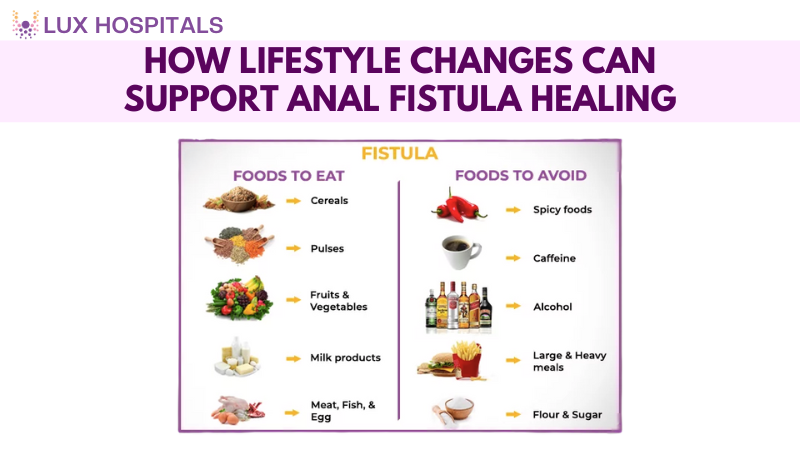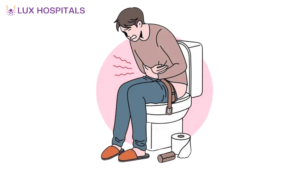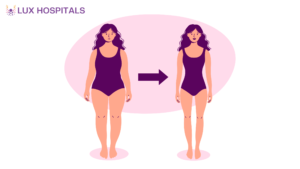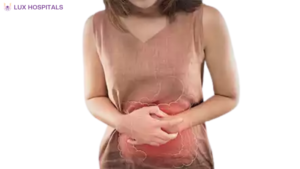How Lifestyle Changes Can Support Anal Fistula Healing?

It can be difficult and mentally taxing to live with an anal fistula. However, the healing of an anal fistula can be significantly improved with the correct lifestyle adjustments. Small everyday habits, such as eating well and practising basic cleanliness, can hasten the healing process and lower the chance of recurrence. Let’s examine how adjusting your routine can enhance overall comfort and accelerate anal fistula healing.
Understanding Anal Fistula Healing
Before making lifestyle changes, it’s essential to understand what anal fistula healing entails. An irregular tube that joins the anal canal to the skin close to the anus is called an anal fistula. It usually develops after an infection or abscess. Healing from this condition depends on multiple factors like hygiene, diet, hydration, and medical care.
Effective Lifestyle Changes to Support Anal Fistula Healing
Making consistent yet straightforward lifestyle changes can play a significant role in anal fistula healing. By softening stool, fibre lessens the tension of bowel movements and keeps the healing tissue from being compressed. These habits not only ease discomfort but also help prevent recurrence, ensuring long-term anal health and better overall well-being.
1. Prioritise a High-Fibre Diet
A fibre-rich diet is one of the most effective ways to support anal fistula healing. Fibre helps soften stool, reducing strain during bowel movements and preventing pressure on the healing tissue.
Recommended foods include:
- Whole grains, including brown rice, barley, and oats
- Fruits like apples, bananas, and papayas
- Vegetables such as spinach, carrots, and beets
- Legumes, including lentils and chickpeas
These foods not only aid digestion but also minimise constipation—a significant trigger for delayed anal fistula healing.
2. Stay Hydrated
Proper hydration is essential for maintaining smooth bowel movements and promoting accelerated anal fistula healing. Your digestive system functions more efficiently when you drink enough water. It efficiently prevents stool hardening.
Tips to stay hydrated:
- Drink eight to ten glasses of water daily.
- Include fluids like coconut water or herbal teas
- Limit caffeine and alcohol, as they cause dehydration
Hydration ensures that your body stays balanced and assists in tissue repair—both essential for anal fistula healing.
3. Maintain Proper Anal Hygiene
Good hygiene prevents infections and supports anal fistula healing after surgery or during conservative treatment.
Follow these hygiene practices:
- Wash the anal area gently with warm water after each bowel movement
- To prevent irritation, use gentle, fragrance-free soap.
- Change dressings regularly if advised by your doctor
- Avoid using harsh wipes or rough toilet paper
Maintaining cleanliness reduces bacterial growth, ensuring smoother anal fistula healing and less discomfort.
4. Avoid Straining During Bowel Movements
Straining puts unnecessary pressure on the anal region and can delay anal fistula healing. It may even cause the wound to reopen or recur.
To prevent straining:
- When having a bowel movement, raise your feet with the aid of a footstool.
- Do not spend much time sitting on the toilet.
- Use stool softeners if prescribed by your doctor.
Making these minor adjustments can significantly enhance comfort and accelerate anal fistula healing naturally.
5. Exercise Regularly (But Gently)
Light exercise improves digestion, increases circulation, and promotes the repair of anal fistulas. However, unless your doctor gives the go-ahead, you should refrain from heavy lifting and high-intensity exercise.
Recommended activities include:
- Walking daily for 20–30 minutes
- Gentle yoga poses that enhance blood flow
- Breathing exercises to reduce stress
Exercise aids both the body’s healing process and the preservation of mental health during the healing of an anal fistula.
6. Manage Stress Levels
Stress can impact digestion and immune function, both of which are crucial for anal fistula healing. Chronic stress might slow down the recovery process or cause flare-ups.
Ways to manage stress effectively:
- Practice meditation or mindfulness
- Ensure you get seven to eight hours of sleep each night.
- Engage in calming activities like reading or nature walks
By managing stress, you create a balanced internal environment that supports anal fistula healing from within.
7. Avoid Smoking and Alcohol
Smoking and alcohol can interfere with the body’s ability to repair tissues, slowing anal fistula healing. While alcohol can cause inflammation and dehydration, nicotine lowers blood flow.
Reducing or giving up these behaviours might significantly speed up recovery and lessen problems if you’re serious about accelerating the healing of an anal fistula.
8. Follow Medical Advice Strictly
Your physician may recommend surgery, antibiotics, or pain medication to address the issue. For anal fistula healing to be effective, adherence to the recommended course of treatment and post-care guidelines is essential.
Always remember:
- Keep your scheduled follow-up appointments.
- Take medications as directed
- Inform your doctor about any discomfort or unusual symptoms
Medical guidance combined with healthy lifestyle changes ensures complete anal fistula healing without recurrence.
9. Include Probiotics for Gut Health
Probiotics are essential for immune function and digestion, both of which play a role in repairing anal fistulas.
Probiotic sources:
- Yoghurt and kefir
- Fermented foods like kimchi and sauerkraut
- Probiotic supplements (as advised by your doctor)
These healthy bacteria help reduce inflammation, improve bowel movements, and strengthen the body’s natural healing mechanisms.
10. Get Enough Rest
Rest is an underrated yet essential part of anal fistula healing.
- Sleep promotes tissue regeneration and helps your body recover from inflammation.
- Ensure you get at least 7–8 hours of quality sleep each night.
- Avoid prolonged sitting and use a cushion instead. If needed to relieve pressure on the anal area.
Conclusion
Adopting these lifestyle changes can significantly support anal fistula healing, minimise pain, and prevent recurrence. While medical treatments are essential, your daily habits can dramatically impact the speed and comfort of your recovery. At Lux Hospitals, patients receive holistic post-care guidance to ensure complete and sustained recovery from anal fistula. Remember, every small step toward a healthier lifestyle contributes to smoother and faster anal fistula healing.





















